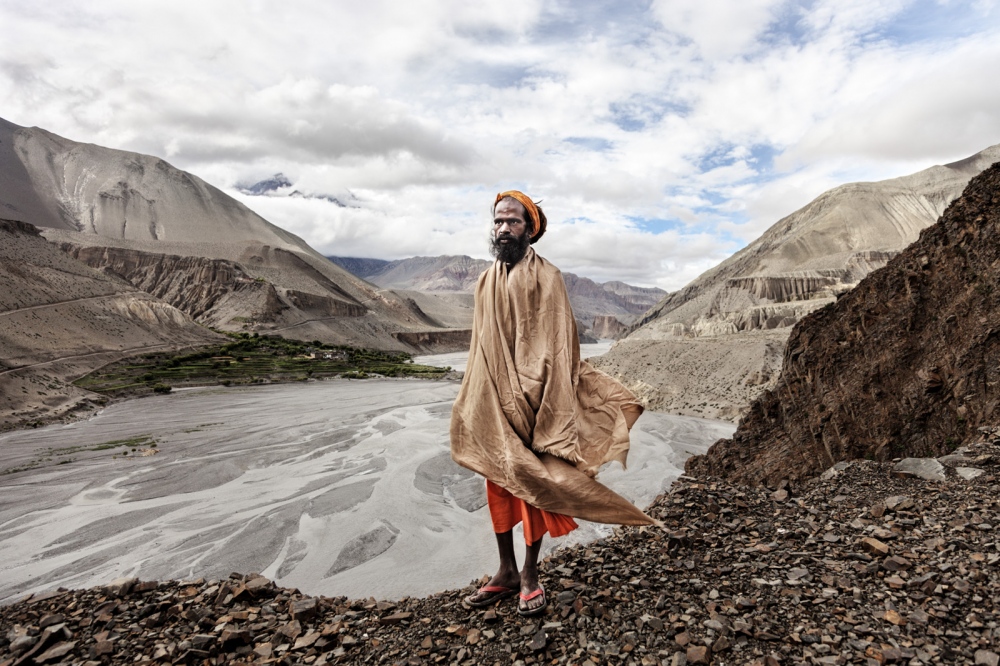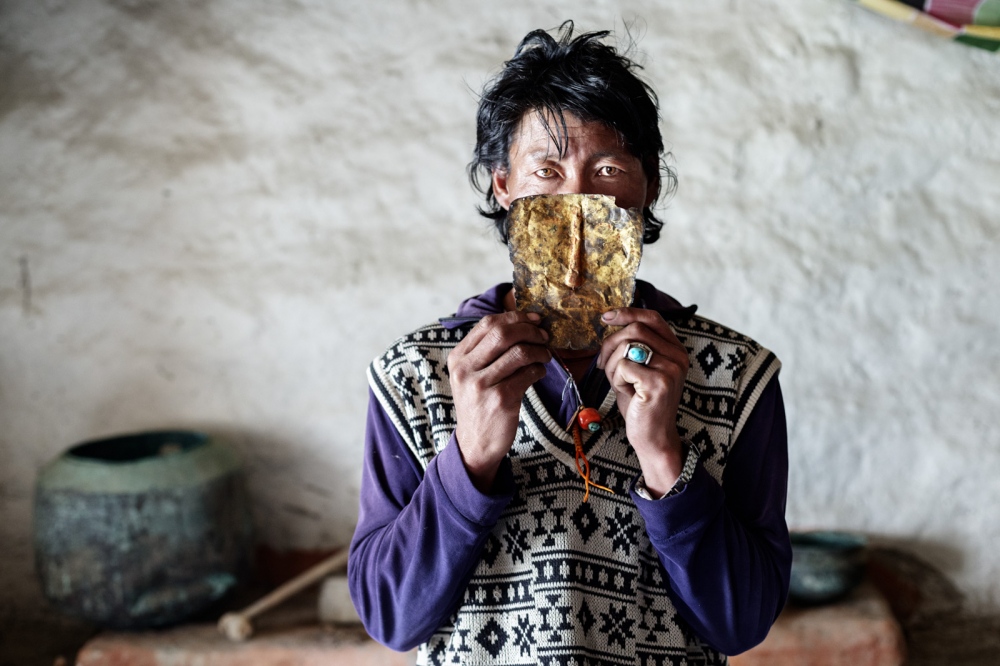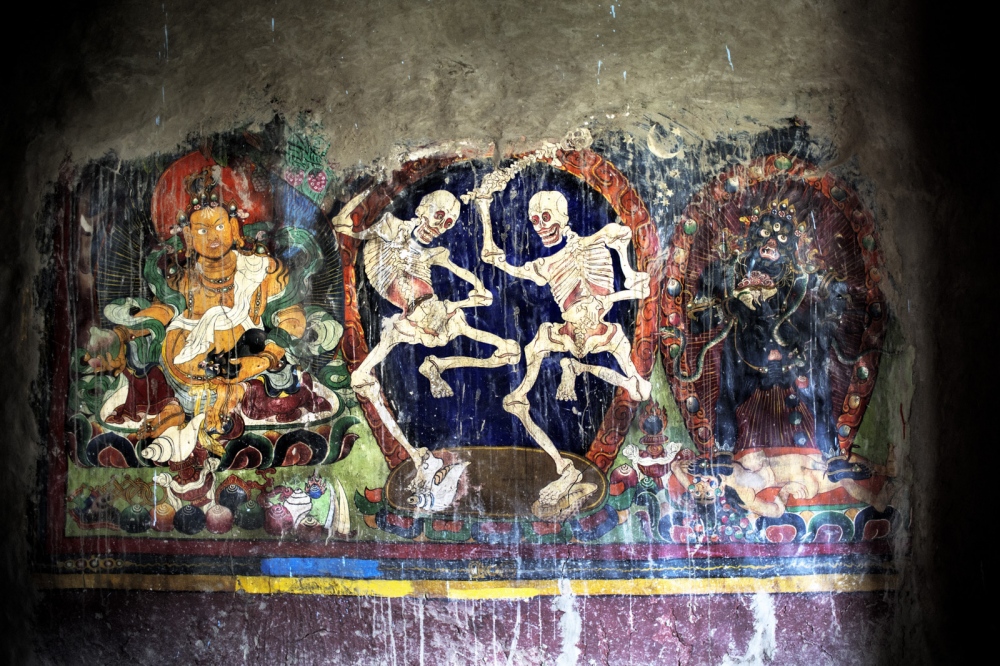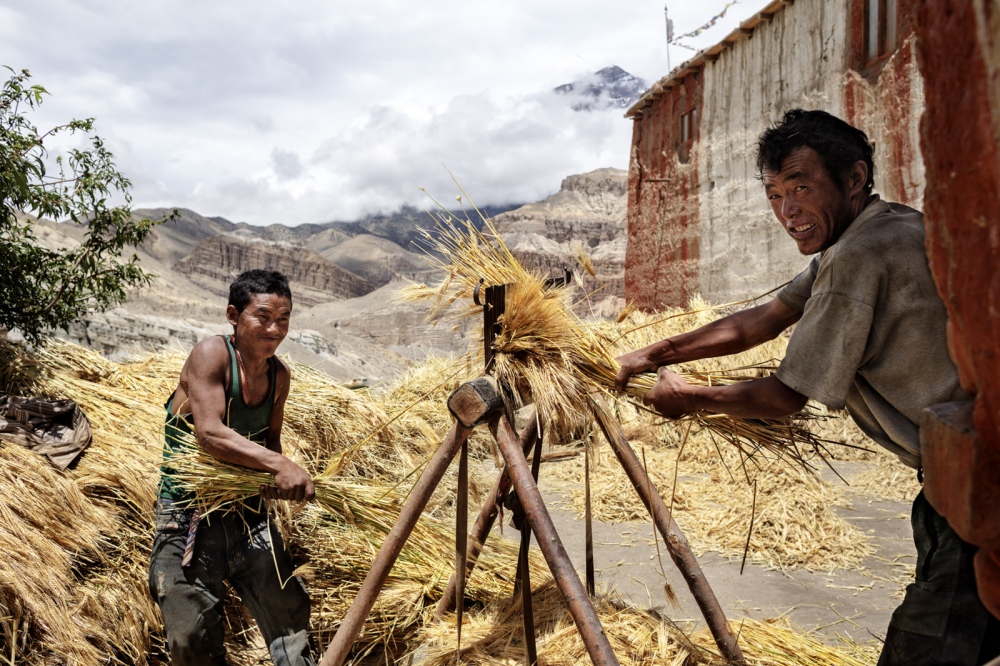Sheltered by some of the world's highest mountains, the 8000-meter peaks of Annapurna and Dhaulagiri, bordering China and the Tibetan plateau, lies the ancient "Forbidden Kingdom" of Mustang. Also known as the Land of Lo, Mustang is sometimes confused with the mythical Shangri-La.
Resolutely off-limits to foreigners until 1992, thanks to its ancestral isolation Mustang retains its ancient culture almost intact, and remains one of the last strongholds of traditional Tibetan life. The region is still restricted and hard to access, with foreign visitors required to obtain special permits and pay some high rates.
The capital of the kingdom , Lo Manthang, is home to the Loba people, the original inhabitants of Mustang. A walled city, it is considered by some scholars to the best preserved medieval fortress to the world as is a UNESCO World Heritage candidate.
The last king of Mustang, Jigme Dorje Palbar Bista (n.1933), whose lineage dates back to the warrior Ame Pal who founded the Buddhist kingdom of Lo in 1380, is now retired in Kathmandu. After the civil war and overthrow of the Nepalese monarchy, Nepal became a republic, and Mustang lost the status as a tributary kingdom it had held from the late eighteenth century, and became a district of Nepal.
With the ongoing construction of a road through Mustang that will connect China with Nepal , the region seeks to regain its strategic location, for centuries the caravans roamed the Kali Gandaki between the Region of Tibet , China and India, with salt, yak wool , cereals, dried meat spices and other goods between the two cultural and physical divisions of Asia in the so-called "Road Salt". Its inhabitants still live mostly of agriculture, grazing and trade, but when this road is completed it will become in the most accessible corridor of Himalayas and the speed of change will be multiplied in the lives of the inhabitants of Mustang due to the influence of the outside world. Young and old, the inhabitants of Mustang understand the road's importance, but they fear the loss of their culture and identity.
This documentary project was done thanks to Larry Levene and his documentary: Mustang "The Last Lost Kingdom"





































